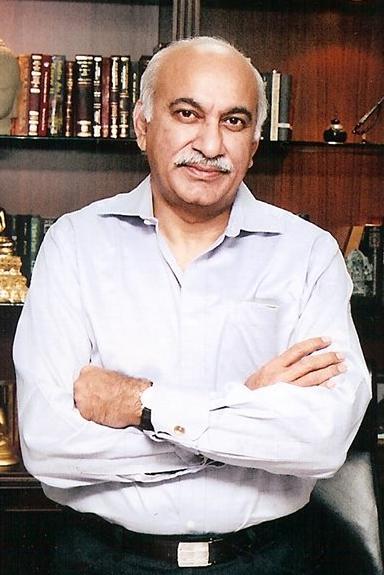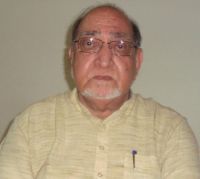 Education comes in many forms when experience is your teacher. I recall the day when I was part of a delegation to some muscular regional satrap. There was only one point on our agenda: the extent, quality and depth of education among minorities, with a stress on how to do far more for the Muslim girl child. A worthy cause brought together a worthy lot: an assortment of editors, educationists, NGO heads, marginal do-gooders. We sat in the room adjacent to the satrap’s office with beatific smiles on our faces. After the compulsory wait, we entered his sanctum in a solemn file.
Education comes in many forms when experience is your teacher. I recall the day when I was part of a delegation to some muscular regional satrap. There was only one point on our agenda: the extent, quality and depth of education among minorities, with a stress on how to do far more for the Muslim girl child. A worthy cause brought together a worthy lot: an assortment of editors, educationists, NGO heads, marginal do-gooders. We sat in the room adjacent to the satrap’s office with beatific smiles on our faces. After the compulsory wait, we entered his sanctum in a solemn file.
Continue reading “A root problem needs a root answer”
Tag: indian muslims education
“There’s nothing called a homogeneous Indian Muslim politically”
MJ AKBAR is a prolific Indian author and journalist. His most recent book is ‘Tinderbox: The past and future of Pakistan’. In an exclusive interview with Inam Abidi Amrohvi, Muslims Today, Akbar speaks on issues that plague the Indian Muslims.

Education has been the bane of Indian Muslims. Has the situation improved both in terms of the infrastructure and mindset?
Yes, and I feel education begins with the mindset. I noticed this in the 1990s, after the high tension of the Babri Masjid episode. I think there was a very strong sense, within the Muslim community of India, of having being let down by politicians who created a hype which led to a high spurt of emotionalism. The community in particular felt abandoned mainly after the Congress government promised to protect the mosque and then quietly went to sleep on the day of the demolition.
I feel there come crisis points in the lives of people which wakes them up. There was a crisis point for example, in 1991, when the economy was hit in India. Similarly, the mosque demolition, too, made Indian Muslims realise that the future lay not in the politics of manipulation (what we have seen being done by those who seek Muslim votes) but in the basics, which is education, from education the economic empowerment. Education is the primary means of economic empowerment. The opportunity base in India is huge.
One of the more important things I see in all the investments of the community, is the education of the girl child. We are already seeing the change in rising literacy levels and the economic opportunities created as a consequence of these investments of the last 20 years.
There is a lot of related infrastructure development all over the country. Education is the biggest growth industry in India. Continue reading ““There’s nothing called a homogeneous Indian Muslim politically””
More than 30,000 scholorships awarded to Muslims
THE Ministry of Minority Affairs has awarded 42,476 Merit-cum-means Scholarships during 2011-12. Of these 32,723 scholarships went to students belonging to the Muslim community. For this the Ministry sanctioned Rs. 1.16 billion during 2011-12. For 2012-13 the budgetary provision for this scheme has been increased to Rs. 2.2 billion and the physical target has also been increased to 80,000 scholarships.
Merit-cum-means scholarship scheme of the Ministry of Minority Affairs is meant for the students belonging to the Minority communities studying in technical and professional courses.
“Government has forgotten the communal violence bill”
DR ASGHAR Ali Engineer is a reformist-writer and activist. He is known for his work on liberation theology in Islam. He is also a leading voice against communalism in India and South Asia. In an exclusive interview with Ali Hasan, Dr Engineer speaks at length about the issues affecting Indian Muslims.
in Islam. He is also a leading voice against communalism in India and South Asia. In an exclusive interview with Ali Hasan, Dr Engineer speaks at length about the issues affecting Indian Muslims.
MT: How do you see the progress of Indian Muslims during the last 20 years?
AA: Though there is some progress in last 20 years but it is far from satisfactory. Muslims are 15 per cent of India’s population and yet nothing more than a mass of ignorant and illiterate people. They are bringing in more money from the Gulf countries than the Christians do from western countries. Whereas Christians are successfully running and controlling educational institutions, Muslims have not improved their literacy by even one percent.
Our leaders, too, hardly do anything to address these problems. Continue reading ““Government has forgotten the communal violence bill””